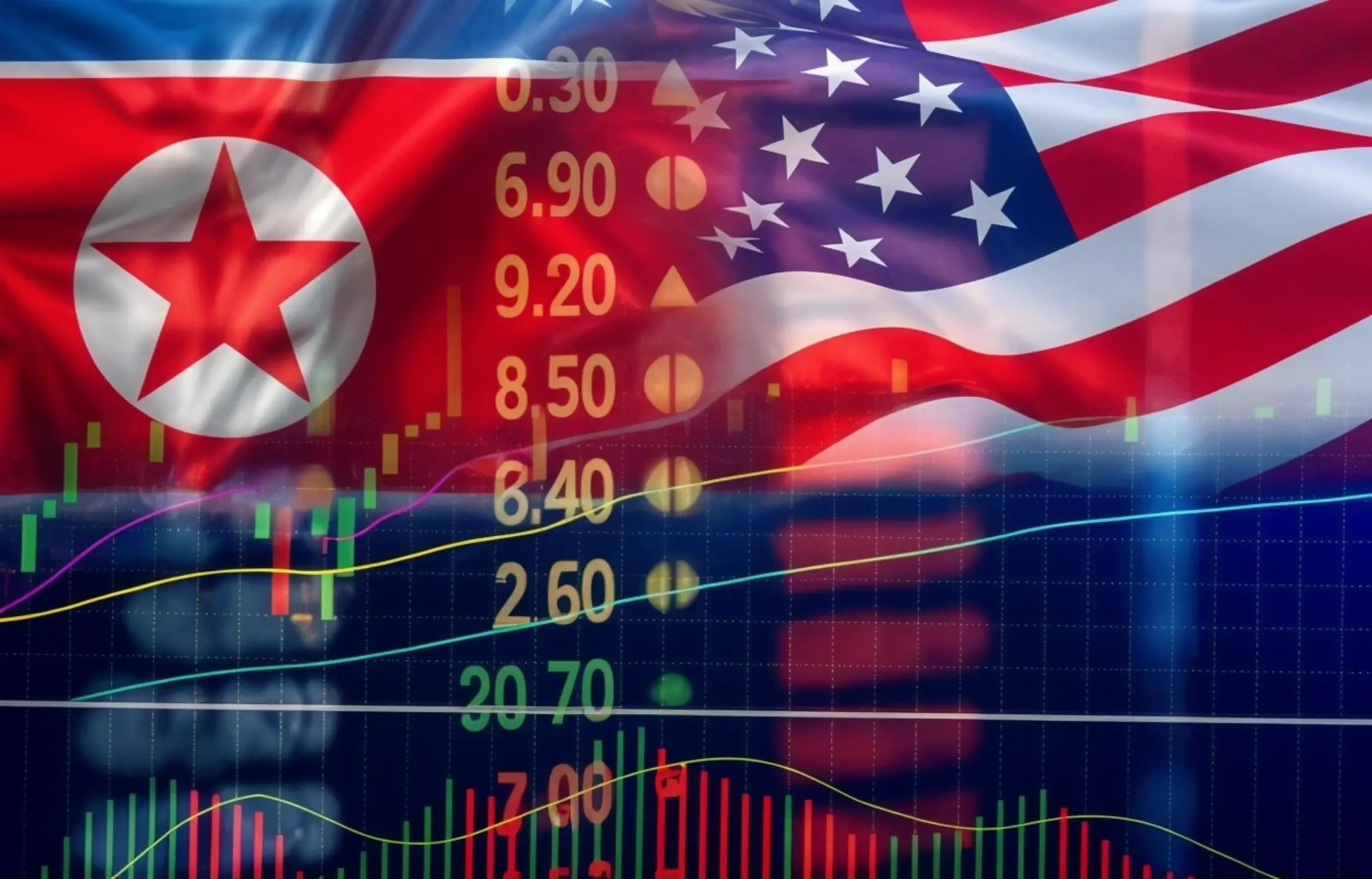Why US Economic Trends Are About to Change Everything in Cryptocurrency Markets
As shifts in the US economy loom, the implications for cryptocurrency markets are profound. Understanding these changes is crucial for investors navigating Bitcoin fluctuations and the impact on the US dollar. The evolving economic landscape could reshape crypto market response for years to come.
Understanding the Impact of the US Economy on Cryptocurrency
The relationship between the US economy and cryptocurrency is intricate. The performance of cryptocurrencies often reflects broader economic trends. Positive economic indicators can bolster investor confidence, leading to increased investments in assets like Bitcoin. Conversely, economic challenges can prompt sell-offs, impacting the overall health of the crypto market.
The US dollar’s role in this dynamic cannot be understated. When the dollar weakens, alternative assets like Bitcoin typically gain traction as investors look for safe havens. As reported, recent shifts in investor sentiments show an increasing interest in Bitcoin as a hedge against inflation and currency devaluation, which aligns with trends in macro-economic reports on inflation rates (Yahoo Finance).
Such a connection highlights the importance of economic trends in shaping investor behavior and dictating the value of cryptocurrencies. For instance, when economic indicators suggest a recession, we often see a rush toward cryptocurrencies as an alternative. This push reflects an underlying fear about traditional markets, where turbulence can lead to significant price fluctuations in digital currencies.
Current Economic Trends Influencing Bitcoin Fluctuations
The current economic landscape shows several macro-economic indicators with significant influences on Bitcoin’s performance. One essential factor is inflation, which has seen rates fluctuate lately. When inflation rises, the value of fiat currencies diminishes, leading many investors to seek refuge in cryptocurrencies. This trend can be traced back to recent data showing inflation creeping up again, prompting speculation about potential rate hikes by the Federal Reserve (Boston Globe).
Additionally, changing investor behavior is evident, as many shift towards diversifying their portfolios amid economic uncertainty. Factors such as interest rates, employment rates, and consumer spending all contribute to the psychological dynamics of crypto investments. Shifts in investor behavior often lead to starker Bitcoin fluctuations, highlighting a direct correlation between economic health and cryptocurrency confidence.
Predictions suggest that Bitcoin may continue to exhibit volatility in the face of these economic changes. As economic conditions stabilize or become uncertain, cryptocurrency investors must remain vigilant, continuously assessing external financial indicators that could influence their portfolios.
Analyzing the Response of the Crypto Market to Economic Shifts
The crypto market showcases remarkable adaptability to the broader economic environment. Recent events illustrate how shifts in economic policies, particularly those orchestrated by the Federal Reserve, substantially affect market sentiment. When the Federal Reserve makes major announcements regarding interest rates or fiscal stimuli, the crypto market responds almost immediately with fluctuations, both upward and downward. Buyers and sellers react based on anticipated future conditions, leading to market volatility (Yahoo Finance).
Within the crypto community, sentiment towards economic indicators holds substantial weight. Recently, many traders have expressed caution in light of mixed signals from the US economy. Some analysts note a hesitancy to engage fully, reflecting broader concerns about external economic pressures on cryptocurrency assets.
Such market dynamics insinuate stronger correlations between macro-economic news and the psychological behaviors of crypto investors. Understanding these drivers can be a powerful tool for predicting crypto market trends in real-time, providing investors with valuable foresight.

The Role of Macro-Economic Indicators in Shaping Crypto Sentiment
Macro-economic indicators are pivotal in shaping cryptocurrency sentiment. Metrics such as GDP growth rates, inflation figures, and unemployment statistics significantly direct market expectations and investor confidence. For example, a robust GDP growth report can bolster optimism in cryptocurrencies, while rising unemployment could trigger bearish feelings among investors.
Understanding how these indicators resonate within the crypto community can offer foresight into potential price movements. Economic forecasts often provide hints about future developments in the crypto market, allowing forward-thinking investors to position their assets accordingly. Moreover, as economic forecasts evolve, so does investor sentiment. With each announcement, there is a ripple effect that manifests in trading volumes and volatility in cryptocurrency valuations.
Identifying essential macro-economic indicators would greatly benefit cryptocurrency investors. Tools that monitor these dynamics can help traders act swiftly in response to changing economic conditions, thereby capitalizing on emerging trends that could signal shifts in market direction.
Strategies for Investors During Economic Uncertainty
In light of mounting economic uncertainty, investors should consider actionable steps to navigate these turbulent waters. Diversification stands at the forefront; by spreading investments across various assets, including traditional markets and cryptocurrencies, investors can mitigate risks associated with economic fluctuations.
Here are some strategies to consider:
– Regularly evaluate economic indicators: Stay abreast of macro-economic data impacting market sentiment.
– Consider a balanced portfolio: Incorporate both high-risk assets like cryptocurrencies and more stable, traditional investments.
– Engage in ongoing education: Understanding industry trends can prepare investors for potential shifts in sentiment and price.
Additionally, utilize platforms and tools that track economic indicators affecting cryptocurrency. This proactive approach will enhance decision-making capabilities during volatile periods.
Future Implications for the Crypto Market
Looking ahead, the long-term implications of current economic trends on cryptocurrency are substantial. Should inflation continue to rise or remain unpredictable, cryptocurrencies may solidify their positions as alternative investment vehicles. As traditional finance systems face challenges, institutional interest in digital currencies could escalate, further intertwining the US economy and cryptocurrency markets.
Growth in cryptocurrency adoption might also evolve, characterized by innovative applications in DeFi (Decentralized Finance) and NFTs (Non-Fungible Tokens), which can further drive valuations. Recent shifts in investor attitudes point toward a future where Bitcoin and other cryptocurrencies might play pivotal roles in portfolios designed to withstand macroeconomic turbulence.
The interaction between the US economy and cryptocurrency will undoubtedly offer new opportunities and challenges for investors. Both sectors are evolving continuously, fostering a dynamic landscape where economic understanding will be key to successful investment strategies.


